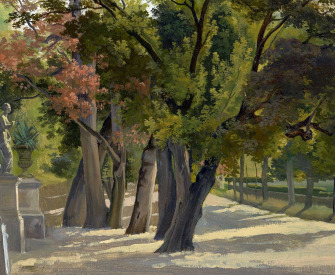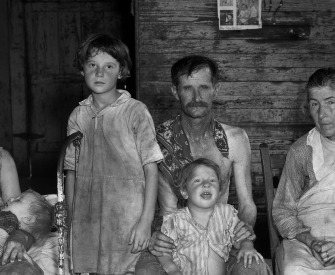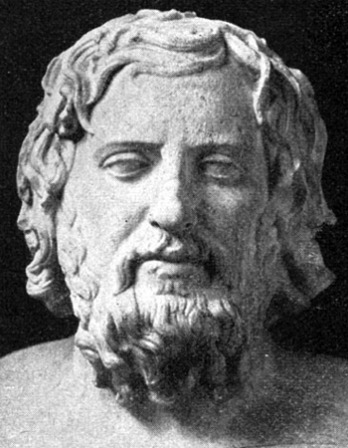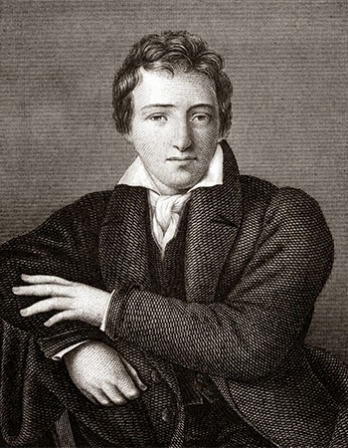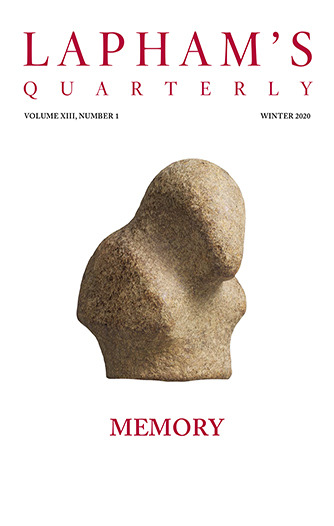[A country house on a terrace. In front of it a garden. In an avenue of trees, under an old poplar, stands a table set for tea, with a samovar. It is three o’clock in the afternoon of a cloudy day.]
Astrov: I should be really delighted if you would come to see me someday with Miss Sophia. My estate is small, a little more than eighty acres, but if you are interested in such things I should like to show you a nursery and seedbed whose like you will not find within a thousand miles of here. My place is surrounded by government forests. The forester is old and always ailing, so I superintend almost all the work myself.
Yelena: I have always heard that you were very fond of the woods. Of course one can do a great deal of good by helping to preserve them, but does that work not interfere with your real occupation? You are a doctor, after all.
Astrov: God alone knows what a man’s real occupation is.
Yelena: And do you find it interesting?
Astrov: Yes, very.
Voynitsky: [sarcastically] Oh, extremely!
Yelena: You’re still young, not over thirty-six or thirty-seven, I should say, and I suspect that the woods don’t interest you as much as you say they do. Nothing but tree after tree—I should think you would find them monotonous.
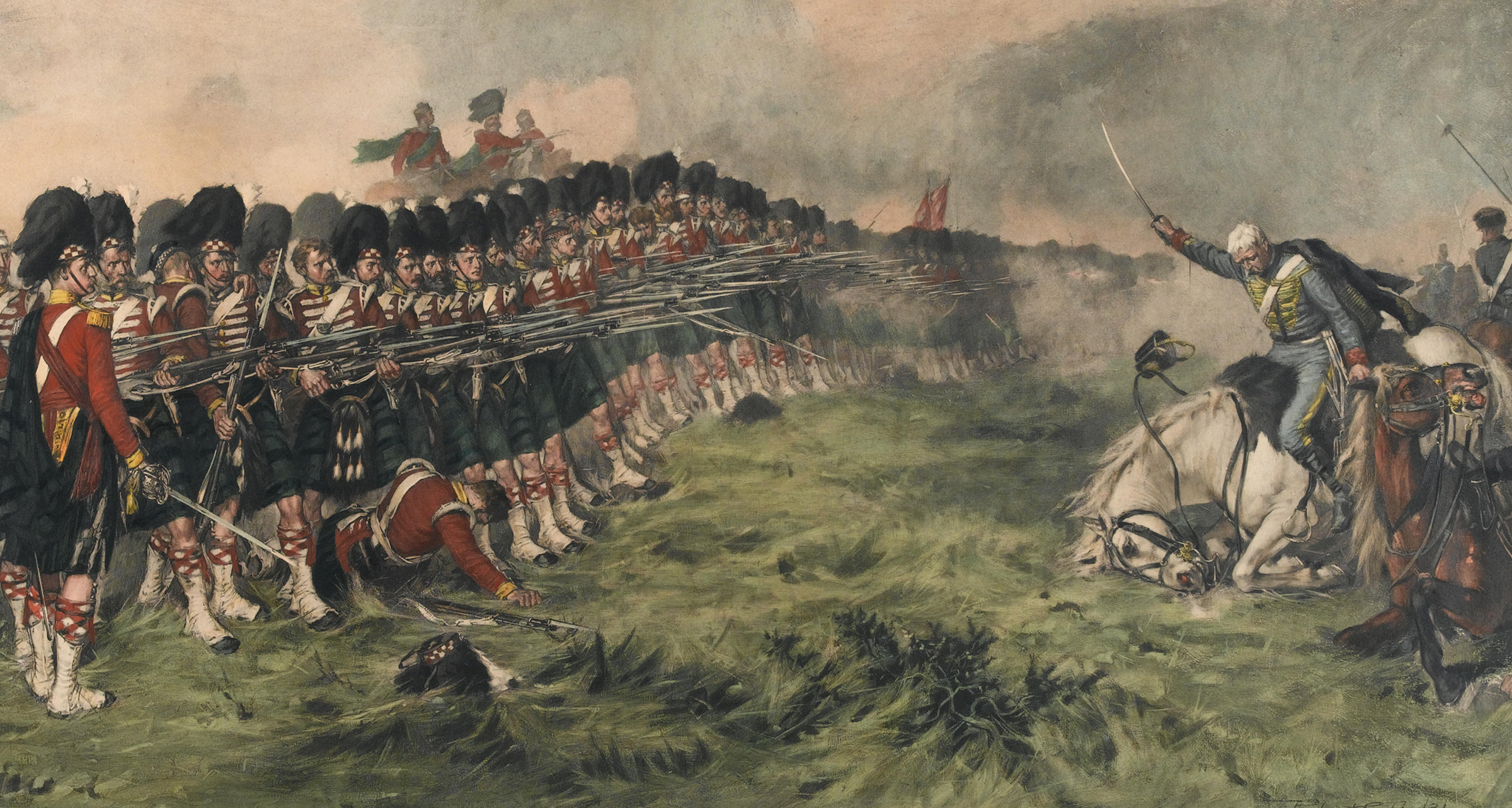
The Thin Red Line, by Robert Gibb, 1881. © National Army Museum / The Art Archive at Art Resource.
Sophia: No, the work is very interesting. Dr. Astrov watches over the old woods and sets out new forests every year, and he has already received a diploma and a bronze medal. If you’ll listen to what he can tell you, you’ll agree with him entirely. He says that forests are the ornaments of the earth, that they teach mankind to understand beauty and attune his mind to lofty sentiments. Forests temper a stern climate, and in countries where the climate is milder, less strength is wasted in the battle with nature, and the people are kind and gentle. The inhabitants of such countries are handsome, tractable, sensitive, graceful in speech and gesture. Their philosophy is joyous, art and science blossom among them, their treatment of women is full of exquisite nobility—
Voynitsky: [laughing] Bravo! Bravo! All that’s very pretty, but it’s also unconvincing. So, my friend [to Astrov], you must let me go on burning firewood in my stoves and building my sheds of planks.
Astrov: You can burn peat in your stoves and build your sheds of stone. Oh, I don’t object, of course, to cutting wood from necessity, but why destroy the forests? The woods of Russia are trembling under the blows of the ax. Millions of trees have perished. The homes of the wild animals and birds have been desolated; the rivers are shrinking, and many beautiful landscapes are gone forever. And why? Because men are too lazy and stupid to stoop down and pick up their fuel from the ground. [To Yelena] Am I not right, Madame? Who but a stupid barbarian could burn so much beauty in his stove and destroy that which he cannot make? Man is endowed with reason and the power to create, so that he may increase that which has been given him, but until now he has not created, but demolished. The forests are disappearing, the rivers are running dry, the wildlife is exterminated, the climate is spoiled, and the earth becomes poorer and uglier every day. [To Voynitsky] I see irony in your look; you don’t take what I am saying seriously, and—and—after all, it may very well be nonsense. But when I pass village forests that I have preserved from the ax, or hear the rustling of the young trees set out with my own hands, I feel as if I had had some small share in improving the climate, and that if mankind is happy a thousand years from now I’ll have been a little bit responsible for their happiness. When I plant a little birch tree and then see it budding into young green and swaying in the wind, my heart swells with pride and I—I must be off. Probably it’s all nonsense, anyway. Goodbye.
[Astrov and Sophia go into the house. Yelena and Voynitsky walk over to the terrace.]
Yelena: You have behaved shockingly again. Really, your behavior is too petty.
Voynitsky: If you could only see your face, the way you move! Oh, how tedious your life must be, absolutely tedious.
Yelena: It is tedious, yes, and boring! How well I understand your compassion! As Astrov said just now, see how you thoughtlessly destroy the forests, so that there will soon be none left. So you also destroy mankind, and soon loyalty and purity and self-sacrifice will have vanished with the woods. Why cannot you look calmly at a woman unless she is yours? Because, the doctor was right, you are all possessed by a devil of destruction; you have no mercy on the woods or the birds or on women or on one another.
Voynitsky: I don’t like your philosophy.
From Uncle Vanya. Chekhov published his first story at age twenty in 1880 and his first book in 1884, the same year he graduated with a medical degree from Moscow University and contracted tuberculosis. “The sun and the skies and the forests and the rivers and the creatures—all this is created, adapted, adjusted to each other. Each is at work and knows its place. And all this is doomed to perish,” Chekhov wrote in his story “The Pipe” a decade before he published Uncle Vanya.
Back to Issue


